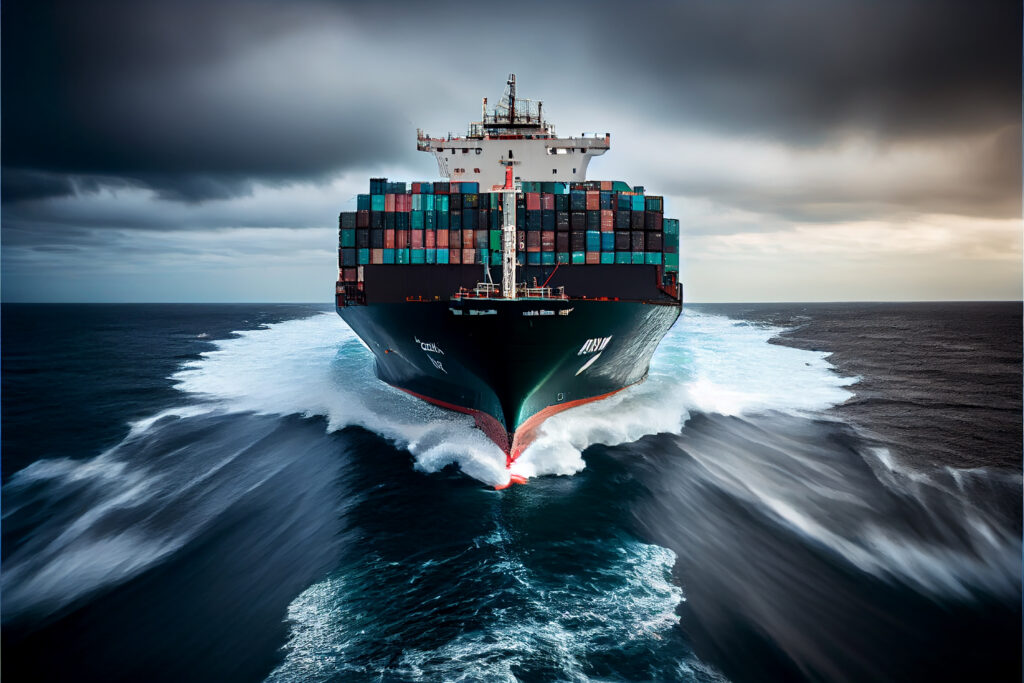Some of the largest shipping and oil companies in the world have refrained from trading due to the Houthi rebels’ attacks on commercial vessels in the Red Sea. This has caused delays and increased costs as trade has been diverted away from a vital route for consumer goods and energy supplies.
On Monday, BP announced that it had made the decision to “temporarily pause all transits through the Red Sea,” which includes the transportation of energy supplies such as liquid natural gas and oil. The London-based oil and gas corporation described it as a “precautionary pause” and stated that crew safety was the top priority while the decision is still being reviewed.

What Has Actually Happened
Since October, when the conflict in Gaza began, the Houthis, who are supported by Iran and who hold large portions of Yemen, including its vital western coast, have assaulted Israeli businesses and trade ships.
By declaring on December 9 that they would attack any ship, regardless of nationality, leaving or returning from Israeli ports, the Houthis intensified their threat. The organization has called for an end to Israel’s military assault on Gaza.
To date, the Houthis have used anti-ship missiles and drones to strike thirteen commercial boats. The ships were attacked in Bab el-Mandeb, the strait that separates the Gulf of Aden from the Horn of Africa and serves as the entrance to the Red Sea.
Concern was raised about the Houthi danger on December 15, when the rebels fired anti-ship missiles on MSC PALATIUM III, a ship flying the Liberian flag and owned by MSC, the biggest shipping company in the world.
On December 15, Maersk, the second-biggest shipping corporation in the world with a 14.8 percent market share in worldwide trade, announced that it would be suspending its activities in the Red Sea. The announcement came a day after its vessel, Maersk Gibraltar, was attempted to be attacked by Houthi rebels.
Why is the Suez Canal so Important
When the container ship Ever Given became trapped in March 2021 and remained there for six days, it brought attention to the importance of the Suez Canal. The 399.94-meter-long ship blocked the path, stopping all trade and creating a catastrophe in the world’s supply system.
One of the busiest waterways in the world, the canal is used by ships carrying products from Asia to Europe. According to Egypt’s State Information Service, in a note posted on its website, “a total of 12 percent of the global trade volume flows through it annually,” and 30 percent of the world’s containers pass through it.
The canal is also key to the supply of food products like palm oil and grain, and anything else brought over on container ships, which are most of the world’s manufactured products.
How is India Impacted?
India uses the Suez Canal for marine trade valued at “around $200 billion,” special secretary for logistics Pawan Kumar Agarwal stated on CNBC TV-18 in 2021 when India was one of the nations hit hard by the obstruction created by the stranded Ever Given vessel.
It is anticipated that commerce volume increased during the post-pandemic era. In June of this year, Egypt prepared to offer New Delhi a dedicated cluster in the Suez Canal Economic Zone’s industrial and logistical hub, signalling that the stakes for India were rising.
According to Kpler data, India’s monthly import of Russian oil increased by 9% to 1.73 million barrels per day (bpd) in November from the previous month. The exports are currently routed via the Suez Canal, and another analyst noted that India would be forced to consider other options if a wider crisis in the region impairs marine traffic.
The Eastern Maritime Corridor, which links the Russian port of Vladivostok with the Indian port city of Chennai, was supposed to be operational by November, but it hasn’t yet been put into use.
Red Sea situation is “definitely a point of concern” for India, according to independent researcher Sourish Ghosh, who works out of Kolkata. “India might band together with other nations to defend the corridor against attacks. It might even use its Navy to clean the area, but given India’s friendly ties with Iran, it’s possible that the Houthis won’t harm India’s regional interests,” he continued.
The Houthis’ growing threat in the Red Sea was initially dismissed by the world oil market, but over the weekend, concerns were raised when crude prices increased by about 1%.
On December 18, the oil firm BP declared a temporary halt of all transits through the waterbody, which caused a harsher 3 percent increase in crude prices.
By 11:20 a.m. ET (16:20 GMT), Brent crude futures had jumped by $2.33, or 3.1 percent, to $78.88 per barrel, while US West Texas Intermediate crude had increased by $2.27, or 3.2 percent, to $73.68. But reduced Russian exports were also influenced by the price increase.
